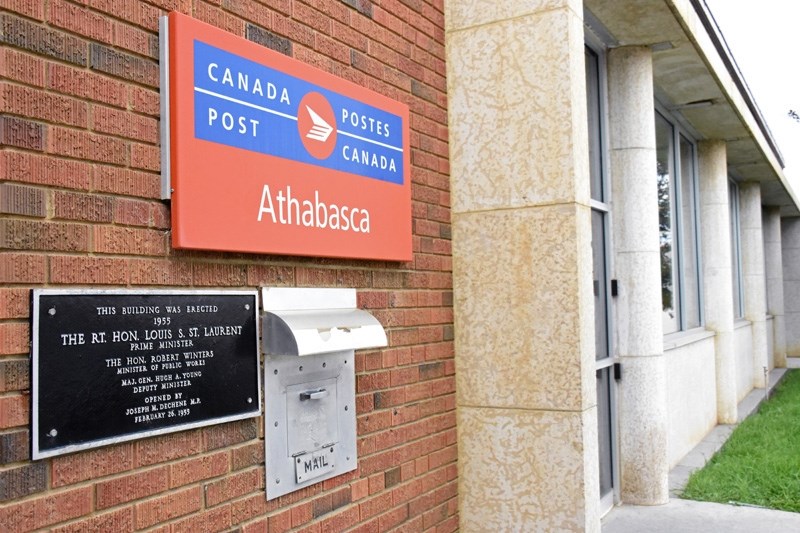As Canada Post and unions representing over 51,000 postal work members head toward a possible work disruption in July, the national mail service is warning customers that their mail service may be suspended.
July 2 marks the end of a 21-day “cooling off” period between Canada Post and both the Canadian Union of Postal Workers (CUPW) Urban and the CUPW Rural and Suburban Mail Carriers (RSMC). At that point, the parties could enter into a strike or lockout situation.
The CUPW said in a statement released June 14 that the bargaining parties for each group had signed agreements with Canada Post to ensure the delivery of government cheques – including pension and social assistance cheques – as well as live animals during any work disruption.
The agreements also state there will be two national days of delivery each month. Union locals will be in charge of recruiting volunteers as needed, who receive $50 honorariums.
Athabasca and Boyle each have two RSMC members, said Larry Dionne, president of the Edmonton CUPW local.
Already, the parties have participated in a 60-day conciliation period for Canada Post, which ended on June 10, as well as a seven-month negotiation period.
“Canada Post understands the importance of the service we provide, and we’ve been working hard since negotiations started in late 2015 to get a deal that is fair to our employees, recognizes the changes to our business and the evolving needs of our customers,” said Phil Legault, Canada Post’s media relations manager, in an email.
“As we are in conciliation, no legal work disruption can occur until the end of June.”
Union leaders say one of their top priorities is eliminating inequity between urban and rural workers.
“Our two bargaining units are at this negotiation table at the same time,” Dionne said.
Dionne pointed out that Edmonton local has 2,500 members and is the largest CUPW local in the country, encompassing the region as far north as Slave Lake, as far south as Wainwright, and spanning the provincial borders.
“One of the huge things is to bring (RSMC) up to the standards of the urban collective agreement,” he said.
Dionne noted that about 90 per cent of rural and suburban mail carriers are women.
“That’s probably one of, if not the biggest, issue in this bargaining,” said Gord Fischer, National Director of the CUPW Prairie region.
“(RSMC) currently receive significantly less. It’s about 28 per cent less in wages. They receive less benefits, they don’t have the job security and they do exactly the same work as the other workers, so we’re trying to correct that.”
Other items on the bargaining table include seniority recognition, ensuring payment for hours worked including overtime, obtaining paid meal and rest periods, improving the system for relief workers, and adjusting the work measurement system.
“What they’ve done is they’ve basically measured the type of work and they use a formula for the collective agreement for RSMCs to determine how much it’s worth,” Fischer said. “The problem is, it doesn’t take into consideration things like fluctuations in mail volumes. It sometimes doesn’t take into consideration the roads that you have to travel, it doesn’t take into consideration sometimes the parcels that you have to deliver to the house holders. It’s an unfair system.”
The unions are also fighting a series of rollbacks on pension plans, transfer rights, vacation leave and physiotherapy, among a host of other items.
“Any time you get a bunch of demands, you kind of look at them and just shake your head and say, that doesn’t make any sense,” Fischer said.
Local members under the Edmonton region will be voting on strike action within the next week.
In the Athabasca area, the vote will take place on June 22.
Dionne and Fischer both said they hope it does not come to that.
“We do this because we don’t know what could happen – they could lock out one bargaining unit or the other, and we can’t strike unless we’ve got that strike mandate from out members,” Dionne said.
“We don’t want to go on strike, that’s the last thing we want, especially for our rural customers. They need the mail a whole lot more than our urban customers.”



